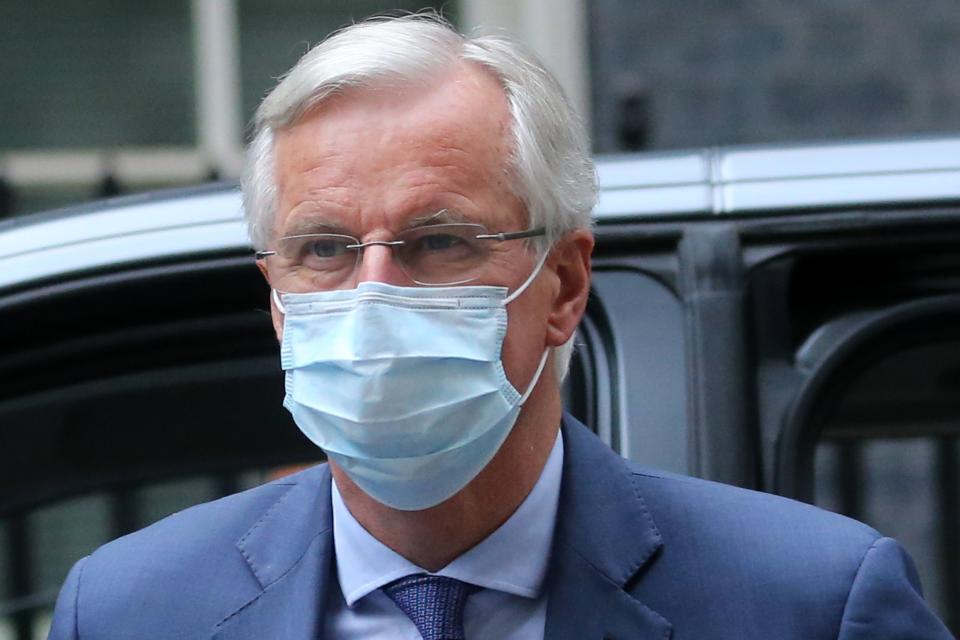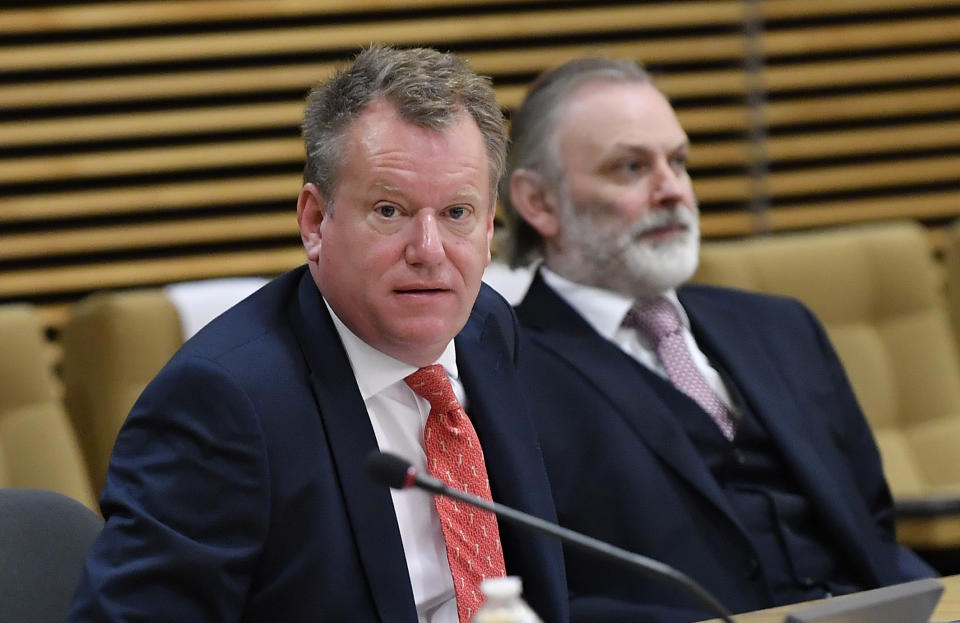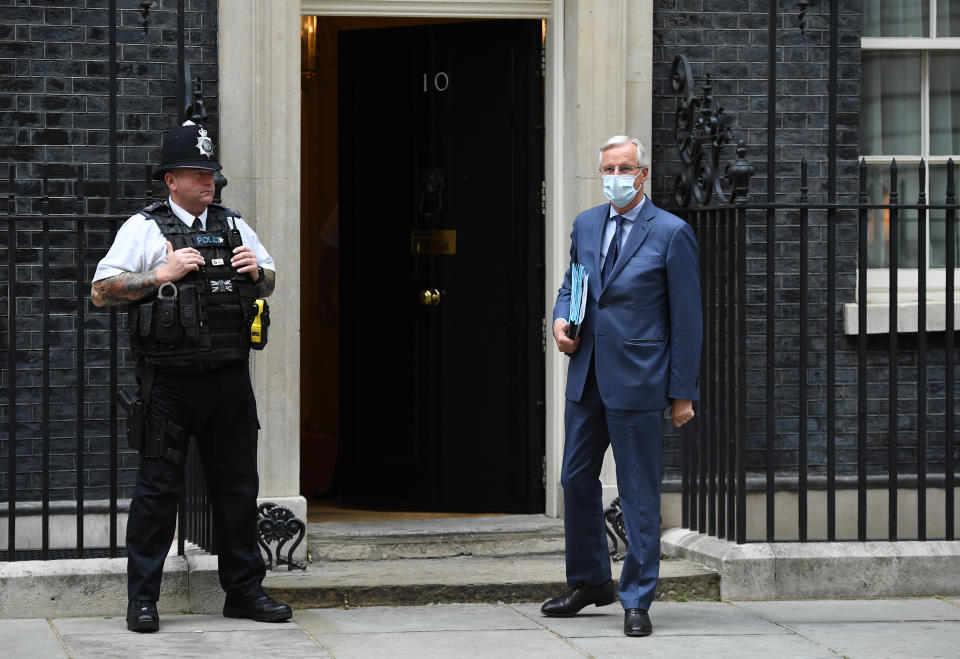EU's Brexit negotiator says trade deal 'unlikely' by year end

The EU’s chief Brexit negotiator has said a trade deal with the UK by the end of the year is “unlikely,” setting up Britain for a disruptive end to the transition period in December.
The fifth round of “intensified” post-Brexit trade talks between the UK and EU ended on Thursday, with both sides saying little progress was made and a deal looked far off.
At a press conference in London, the EU’s chief Brexit negotiator Michel Barnier said: “By its current refusal to commit to the condition of open and fair competition, and to a balanced agreement on fisheries, the UK makes a trade agreement at this point unlikely.”
David Frost, the UK’s chief Brexit negotiator, struck a more optimistic tone, saying in a statement: “My assessment is that agreement can still be reached in September, and that we should continue to negotiate with this aim in mind.”
However, he admitted that “considerable gaps remain in the most difficult areas” and said the UK “must face the possibility that [a deal] will not be reached.”
The two sides have been deadlocked since talks began at the start of the year. Negotiations have stalled on the issue of EU access to UK fishing waters, state aid rules, and how to ensure a “level playing field” between EU and UK companies.
Barnier said the UK’s demands of “near-total exclusion of fishing vessels from the UK’s water” was “simply unacceptable.” He said the two sides had made “no progress at all” on state aid rules and said: “On the level-playing field, the UK still refuses to commit to maintaining high standards in a meaningful way.”

Frost said: “We have always been clear that our principles in these areas are not simple negotiating positions but expressions of the reality that we will be a fully independent country at the end of the transition period.”
If a deal cannot be reached, the UK risks a disruptive end to current trading terms with the EU in January. Barnier said such an outcome would add “additional friction” to trade between Britain and the EU.
“There are risks of no deal,” he said.
“We’re in a negotiation,” Frost told media. “Either outcome is possible. We will work energetically to get a deal but it is possible we won’t reach one.”
The lack of progress will come as a blow to both EU head Ursula von de Leyen and UK prime minister Boris Johnson. The pair held a high-level meeting in June and seemed to make progress, authorising “intensified” negotiations.
Barnier blamed the British, claiming they were failing to meet the EU halfway on its demands.
“Over the past few weeks the UK has not shown the same level of engagement and readiness to find solutions respecting the EU fundamental principles and interests,” he said.

Frost told media: “We have made progress in areas like trade, trade of goods and services, transport, social security co-operation, EU programmes, participation and so on which is good. But nevertheless big differences do remain.
“Until the EU has internalised and accepted that we will be an independent state with the right to determine our laws, control our own fishing grounds then it will be difficult to reach an agreement.”
The Brexit transition period is due to end on 31 December but Barnier warned that the two side have “only a few weeks left” to strike a deal, as a draft text must be agreed by “October at the latest” to allow time for it to be passed into law.
“We should not waste it,” he said.
The Telegraph reported this week that Whitehall has begun working under the assumption that a trade deal with the EU will not be reached by the end of the year.
Frost said the UK was “preparing for all possible scenarios for the end of the transition period at the end of this year.”
The pound was trading slightly lower in the wake of the comments, down 0.1% against the euro to €1.0983 (GBPEUR=X) and down 0.3% against the dollar at $1.2692 (GBPUSD=X).
The next round of trade talks begin on 17 August.
Listen to the latest podcast from Yahoo Finance UK

 Yahoo Finance
Yahoo Finance 